DEALING WITH MENTAL ILLNESS STIGMA
Stigma is a negative stereotype. It is an unbearable reality for many people with mental illness, and how others judge them is their greatest barrier to a complete and satisfying life.
Stigma differs from discrimination. Discrimination on the other hand is the unfair treatment due to a person’s identity. Summarily, Stigma is the negative stereotype and discrimination is the behavior that results from the negative stereotype.
Regardless of good intentions, people tend to perceive anyone whose psychological problems are worse than their own as “them” and not “us.” They are referred to as “other” as the case may be. No one wants to be associated with a person battling mental illness. Stigma occurs when society labels someone as tainted or less desirable.
Just as mental health issues, including depression, are a global issue so, sadly, are the stigma, shame, and discrimination experienced by those with mental health problems. The stigma related to mental health problems is particularly severe and widespread.
Mental health issues themselves do not discriminate as it is a “respecter” of nobody. They can happen to anyone.
Stigma can be classified broadly into two; namely Social stigma and Self-stigma
Social stigma, also called public stigma, refers to negative stereotypes of those living with a mental-related problem. These stereotypes mark the victims as different and prevent them from being seen as an individual that needs to be part of society.
Self-stigma occurs when a person internalizes negative stereotypes. This can cause low self-esteem, shame, and hopelessness.
Here are some ways to deal with stigma:
Legislation
Putting anti-discrimination policy and legislation in place. This approach has proven successful in so many issues. Applying it to reducing discrimination experienced by people on grounds of gender, race, and sexual orientation will go a long way in dealing with the menace.
Confidence
Don’t let stigma create self-doubt and shame. Stigma doesn’t just come from others. You may mistakenly believe that your condition is a sign of personal weakness or that you should be able to control it without help. Seeking counseling and educating yourself about your condition can help you gain self-esteem and overcome destructive self-judgment from others.
Association
Don’t isolate yourself. One might feel reluctant to tell anyone about one’s condition but summoning the courage to feel among others despite what others might feel or say does more healing than imagined. Reach out to people you trust for the compassion, support, and understanding you need. Joining support groups like Stop Mental Illness Foundation would help a lot. A great way to lessen the burden stigma imposes is by finding an organization that resonates with you and then supporting it
Get treatment
Feeling reluctant to get treatment is normal but don’t let the fear of being labeled with a mental illness prevent you from seeking help. Treatment can provide relief by identifying what’s wrong and reducing symptoms that interfere with your work and personal life.
Tell your story.
Stigma lives in darkness, in shame. Bringing stories of struggle into the light weakens it. The social distance and self-stigma that comes from the “them not us” myth can’t survive people telling the story of how they, or their loved ones, experienced emotional suffering. Truth destroys stigma. Stories brought to light reduce shame. And one person’s story really can be the key to unlocking someone else’s story from the shackles of shame and stigma.
Speak out against stigma
Consider expressing your opinions at events, in letters to the editor, or on the internet. It can help instill courage in others facing similar challenges and educate the public about mental illness.
It’s not personal. Remember that other people’s judgments often come from a lack of understanding rather than anything else.
Say No to Mental Illness Stigma
